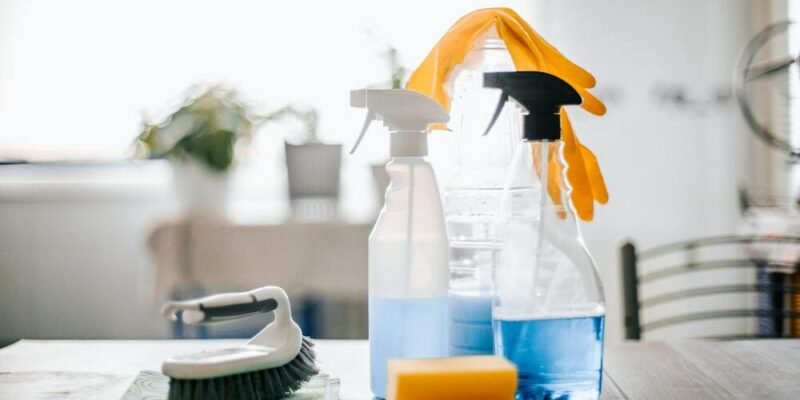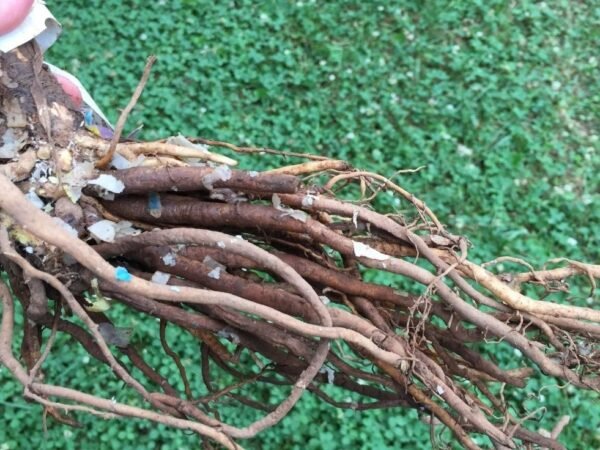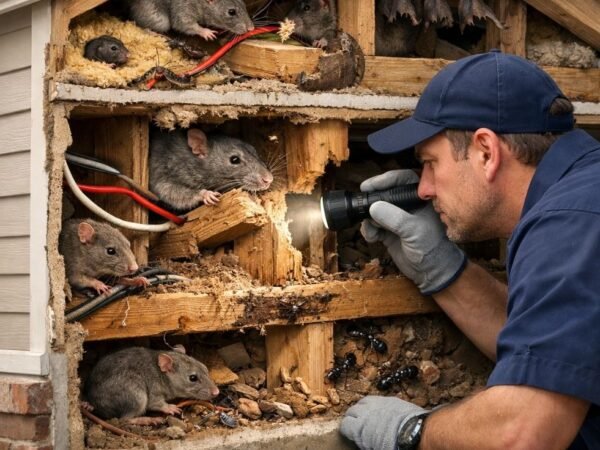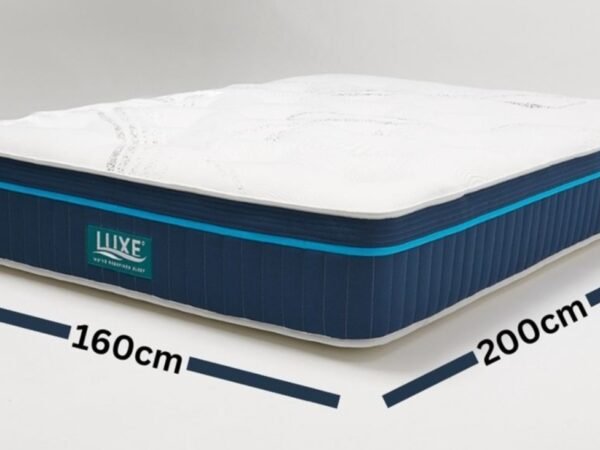Keeping your home clean is essential for its appearance and the health and well-being of your family. However, many standard cleaning habits can do more harm than good, leaving hidden germs and allergens behind or damaging surfaces. Checking out Rag Mops reviews can guide you in choosing reliable services to avoid these mistakes, helping you create a healthier home while saving time and effort.
Using the Same Cloth for Multiple Surfaces
One of the most common cleaning mistakes is using the same cloth or sponge on multiple surfaces without cleaning it in between. This habit spreads dirt, bacteria, and viruses from one area to another rather than removing them.
Always Use Separate Cloths for Different Areas
- Kitchen and bathroom: Use separate clothes for each room to avoid cross-contamination. Kitchen counters and bathroom surfaces harbor different bacteria, and using the same cloth can spread harmful germs.
- Microfiber cloths are more effective at trapping dirt and bacteria but should be washed after each use.
Overlooking High-Touch Surfaces
It’s easy to focus on visible dirt. Still, high-touch surfaces like door handles, light switches, and remote controls often get overlooked. These areas can harbor bacteria and viruses, contributing to the spread of illnesses in your home.
Clean High-Touch Surfaces Regularly
- Door handles and light switches: Wipe these down with disinfectant at least once weekly, especially during flu season.
- Electronics: Remember to disinfect your phone, tablets, and keyboards regularly. These items frequently contact your hands and face, making them hotspots for germs.
Not Letting Disinfectants Sit Long Enough
Simply spraying a disinfectant and immediately wiping it away won’t give it enough time to kill harmful bacteria and viruses. Most disinfectants need a few minutes to work effectively.
Follow the Product Instructions
- Dwell time matters: Read the label to see how long the disinfectant needs to sit before being wiped away. This dwell time ensures it has the opportunity to kill all germs.
- Use enough product: Don’t skimp on disinfectant – use enough to cover the surface and give it time to work thoroughly.
Cleaning Windows on a Sunny Day
It might seem like a sunny day is the perfect time to clean your windows, but direct sunlight causes cleaning products to dry too quickly, leaving streaks behind.
Choose the Right Time
- Wait for overcast weather: Clean your windows on a cloudy day, early morning, or late evening when the sun isn’t as intense. This gives your cleaning solution time to break down dirt without drying prematurely.
- Use the right tools: A squeegee and a microfiber cloth are your best friends for streak-free windows.
Neglecting Your Vacuum Cleaner
A vacuum cleaner is one of the most effective tools for maintaining a clean home. Still, it can only do its job correctly if it is maintained. Many people forget to clean the vacuum itself, reducing its efficiency and causing it to spread dirt instead of removing it.
Regularly Clean Your Vacuum
- Empty the bag or canister: A full vacuum bag or canister reduces suction power. Empty it regularly, especially if you have pets or allergies.
- Check the filters: Clean or replace the vacuum filters to maintain air quality and ensure the vacuum picks up fine particles like dust and dander.
Using Too Much Cleaning Product
More isn’t always better when it comes to cleaning solutions. Using excessive amounts of product can leave behind residue, which attracts more dirt and makes surfaces look dull.
Follow the Recommended Amount
- Less is more: Use the recommended amount of cleaning product to avoid buildup. If you’re cleaning a large area, work in sections rather than overloading with product.
- Rinse if needed: Some surfaces, especially floors, might require a rinse after cleaning to remove any leftover residue.
Forgetting to Clean Your Cleaning Tools
Tools such as sponges, mop heads, and vacuum attachments can become breeding grounds for bacteria if not cleaned properly. Using dirty tools to clean your home defeats the purpose and can even spread germs.
Clean Your Tools After Each Use
- Sponges and cloths: Sponges should be disinfected or replaced frequently and washed in hot water after each use.
- Mop heads and brushes: To prevent bacteria buildup, wash mop heads and cleaning brushes in hot water or run them through the washing machine regularly.
Ignoring the Air in Your Home
A spotless home is only truly clean if the air quality is good. Many people forget that indoor air can become polluted with dust, pet dander, mold spores, and chemicals from cleaning products.
Keep Air Quality in Mind
- Open windows: Ventilate your home while cleaning to let fresh air in and allow indoor pollutants to escape.
- Use air purifiers: If you have pets or allergies, consider using air purifiers to remove allergens and improve air quality.
- Choose eco-friendly products: Opt for natural or green cleaning products to minimize introducing harsh chemicals into your home’s air.
Overusing Antibacterial Products
While antibacterial products can be helpful, overusing them can lead to the development of resistant bacteria and may also kill off beneficial bacteria.
Use Antibacterial Cleaners Sparingly
- Only where necessary: Antibacterial cleaners should be reserved for high-touch surfaces or areas prone to germs, such as the kitchen and bathroom.
- Soap and water are enough: For many surfaces, regular soap and water clean well without the need for harsh antibacterial agents. Always opt for non-toxic cleaning products that effectively clean without harsh chemicals for a safer and healthier home.
Fun Fact: The “Five-Second Rule” is a Myth
Contrary to popular belief, the “five-second rule” doesn’t exist. Once food hits the floor, it’s instantly contaminated with bacteria. Studies have shown that germs transfer to food immediately, so tossing it and avoiding the risk is best.
Creating a healthier home is more than just cleaning—it’s about cleaning correctly. By avoiding these common mistakes, you’ll make your cleaning efforts more effective, reduce the spread of germs, and keep your home cleaner. From giving disinfectants time to work to remembering to clean your tools, these small changes can make a big difference in the cleanliness and health of your living space. So next time you grab your cleaning supplies, remember to clean smarter, not harder!
Do Read: Integrating Embedded Computers with Architectural Lighting: Creating Smarter, More Efficient Spaces













